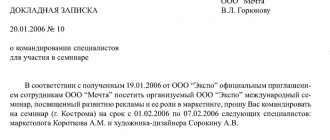The financial liability of a director has a number of significant features and differs significantly from the obligations of ordinary employees. Thus, the competence of employees includes monitoring the safety of entrusted property, and the manager is authorized to be responsible for all actions and events occurring at the enterprise, regardless of working hours. In addition, the general director is also a responsible person authorized to report on expenses to the meeting of founders and the Federal Tax Service.
Financial liability of the director of the organization
The financial responsibility of general directors, heads of regional branches and departments is formed on special conditions reflected in Chapter 38 of the Labor Code of the Russian Federation. Thus, the following features of this area of labor relations must be taken into account:
- grounds for liability arise when the intentional actions of management or evasion of duties caused harm to employees;
- damage to the property of the organization or individual employees is compensated by management;
- compensation for delays in employee wages;
- compensation for moral damage.
ATTENTION! Unlike ordinary employees, heads of organizations bear full financial responsibility. Partial compensation for damage caused by the employer is not provided for by law.
In what cases does liability not apply?
The principles of responsibility of the head of the organization are reflected in the agreement. This is a special agreement that stipulates the obligations of the parties regarding the safety of corporate values. If the additional document does not approve the measures of the boss’s responsibility for property, then compensation for damage cannot be demanded from him.
Civil liability:
Legal registration of an LLC or an organization of another form of ownership entails a fairly wide range of responsibilities for the manager. The director bears full financial responsibility to society. This means that he is obliged to compensate the society not only for the direct actual damage caused to the society by his guilty actions (inaction), but also for lost profits.
Direct actual damage is understood as a real decrease or deterioration in the condition of existing property, as well as the need for an organization to incur costs for the acquisition (restoration) of property or for compensation for damage caused to third parties.
A member of the LLC, the new director, has the right to file a claim for compensation for losses caused to the company by its director.
How to formalize the financial responsibility of a manager
Considering that the Labor Code provides only universal conditions for concluding a document assigning responsibility to managers, the full range of responsibilities of a manager must be fixed in the contract. There are two types of agreements that reflect these employment relationships:
- Contract for the employment of workers. When concluding a contract, the text of the agreement describes in detail the rights and obligations of the participants. This document must indicate the boss’s material obligations towards the workers.
- Drawing up a liability agreement. This is an agreement drawn up between the boss and the board of founders of the LLC (limited liability company). The document is mandatory because it contains a list of the manager’s job responsibilities, as well as the sanctions that will be applied to him if the terms of the contract are violated.
IMPORTANT! Financial liability of management occurs not only when intentionally committing actions aimed at causing damage, but also when unsatisfactorily performing official duties, which affected the efficiency of the enterprise.
Administrative responsibilities of the manager:
The features of bringing officials to administrative responsibility are as follows. An administrative offense is an unlawful, guilty action (inaction) of a legal entity or its director, for which administrative liability is established by the Code of Administrative Offenses of the Russian Federation (CAO RF) or the laws of the constituent entities of the Russian Federation on administrative offenses.
The manager bears administrative responsibility regardless of the administrative responsibility of the legal entity itself. This means that both the director and the legal entity can be held administratively liable for the same offense.
Not only employees are subject to certain fines if they violate labor discipline. There is also the administrative responsibility of the head of the organization, director, managing person with specific powers in a small company or large organization. Such people solve serious administrative, economic, labor and other issues and lead the team.
The director may be officially held administratively liable for the following violations:
- infringements on the rights of workers and citizens under subordination;
- in the field of state property;
- in industrial activities, construction;
- rules of the business code;
- in the field of securities turnover, tax payments (read the link about the consequences of non-payment of taxes for an LLC on the lawyer’s blog);
- in the customs field;
- other violations, for a more precise list read below.
Terms and procedure for bringing to administrative responsibility
The strictly established procedure for bringing an official to administrative responsibility includes several stages.
- It all starts with identifying a violation during an inspection or when a complaint is received from a subordinate.
- Then a protocol is drawn up and all the circumstances of the case are investigated and evidence is collected.
- The completed protocol with accompanying documentation is sent to the prosecutor's office or labor inspectorate. Also, documents can be considered in city and district courts, by state inspectors, and representatives of supervisory authorities.
There are some features of the administrative responsibility of officials. If a citizen is found guilty, specific sanctions are applied to him. Punishment may be imposed no later than two months from the date of violation of the law.
The average fine ranges from 5 to 55 thousand rubles. Sometimes the object of the offense is confiscated - products or goods that do not meet certain hygienic or technical requirements are confiscated. Many citizens are interested in the question of whether it is possible to bring a former director to administrative responsibility? This can be done, but only within the statute of limitations for a specific offense. If it has already expired, you will not be able to contact the appropriate authorities and seek justice.
Therefore, if there is a difficult situation, you need to act immediately. You should not delay drawing up a protocol on the violation of your rights or freedoms. Time will pass, and the crime may go unpunished because the statute of limitations has expired.
Attention : watch the video on protecting rights in administrative cases, and also subscribe to our YouTube to learn the advice of a lawyer and receive free advice from a lawyer in Yekaterinburg through comments on the video.
The Code of Administrative Offenses of the Russian Federation contains a fairly large list of offenses that a director of a legal entity can commit. Here are just a few of them:
- Carrying out business activities without state registration or without special permission or license (Article 14.1)
- Violation of advertising legislation (Article 14.3)
- Sale of goods, performance of work or provision of services to the population of inadequate quality or in violation of the requirements of technical regulations and sanitary rules (Article 14.4)
- Sale of goods, performance of work or provision of services in the absence of established information or non-use of cash register equipment in cases established by federal laws (Article 14.5)
- Consumer fraud (Article 14.7)
- Illegal use of a trademark (Article 14.10)
- Illegal receipt of a loan (Article 14.11)
- Fictitious or deliberate bankruptcy (Article 14.12)
- Violation of the rules for the sale of certain types of goods (Article 14.15)
- Violation of legislation on state registration of legal entities and individual entrepreneurs (Article 14.25)
- Unfair competition (Article 14.33)
- Violation of the procedure for handling cash and the procedure for conducting cash transactions (Article 15.1)
- Violation of the deadline for registration with the tax authority (Article 15.3)
- Violation of the deadline for submitting information about opening and closing an account with a bank or other credit organization (Article 15.4)
- Violation of deadlines for submitting a tax return (Article 15.5)
- Failure to provide information necessary for tax control (Article 15.6)
- Gross violation of the rules of accounting and presentation of financial statements (Article 15.11)
- Unfair issue of securities (Article 15.17)
- Violation of legal requirements relating to the presentation and disclosure of information on the securities market (Article 15.19)
- Violation of legal requirements on the procedure for preparing and holding general meetings of shareholders, participants in limited (additional) liability companies and owners of investment shares of closed mutual investment funds (Article 15.23.1)
- Violation of the currency legislation of the Russian Federation and acts of currency regulatory authorities (Article 15.25)
- Forgery of documents, stamps, seals or forms, their use, transfer or sale (Article 19.23)
- Illegal remuneration on behalf of a legal entity (Article 19.28)
- Violation of fire safety requirements (Article 20.4)
- Violation of legislation in the field of ensuring sanitary and epidemiological welfare of the population and legislation on technical regulation (Article 6.3)
ATTENTION : The above list of punishable acts is not exhaustive.
Grounds for liability
Recovery of damages is carried out only within the framework of the current agreement. Thus, the board of founders may request compensation for material damage under the following conditions:
- inadequate control over the enterprise’s document flow caused the loss of customers or profits;
- lack of positive results in the development of the company;
- inaction when it is possible to conclude new contracts;
- insufficient attention to litigation in protecting the interests of the company;
- monetary shortage or loss of material assets;
- Incorrect submission of financial reporting documents.
In relation to employees, management will be forced to answer for the following points:
- loss of job due to the fault of management;
- causing moral harm to employees;
- the activities of the company administration caused the loss of legal capacity of the employee;
- unauthorized withholding of cash payments;
- causing damage to employee property.
Before applying sanctions, the official’s guilt must be proven in the prescribed manner. To do this, the interested party collects evidence confirming the amount of damage, as well as the cause-and-effect relationship between the actions of the manager and the resulting harm. And, since the resolution of such disputes is based on financial compensation, the conflict is resolved exclusively in the courts.
ATTENTION! If the boss is the only founder, then he is responsible only to the employees. Being the sole owner of the company, the director is not responsible to the shareholders or founders for his actions and the effectiveness of the work performed.
Financial liability of directors of branches and divisions
Heads of structural divisions, in fact, perform the functions of the general director, but only within one small branch. The legislation stipulates that regional bosses are only representatives of the main management, and therefore cannot be responsible for property and should not compensate for property damage.
ADVICE! In order to secure the functions of material control over local authorities, it is necessary to additionally conclude an appropriate agreement with them. This is an agreement on recruitment within a separate branch. The contract specifies the responsibilities of the manager, as well as the sanctions applied to him. Here you need to indicate whether such obligations are full or partial.
When claiming money, calculation of the damage caused plays an important role. Thus, compensable losses are those that the company needs to cover on its own (payments to injured employees), the value of property damaged as a result of illegal actions, as well as the amount of lost profits (it is quite difficult to calculate these figures, given the difficulties of establishing the dynamics of the company’s potential development).
As noted above, only the courts can make decisions in such disputes. The interested party needs to prepare a statement of claim with legal requirements and send it to the authority located at the defendant’s place of residence. If a conflict arises between an employee and a boss, then the resolution of the dispute is within the jurisdiction of the regional authority. Otherwise, you will have to go to arbitration.





